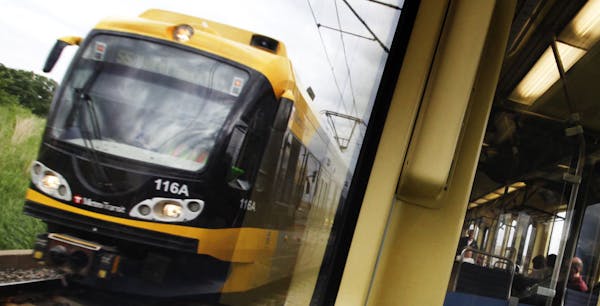Minneapolis has set aside $150,000 to conduct a study on the potential impact of a higher minimum wage in the city, or in both Hennepin and Ramsey counties.
The City Council voted 10-3 on Friday to issue a request for proposals from firms that would study both a $12 and $15 minimum wage. Some council members have been pushing for a citywide increase, joining with workers' groups who have led demonstrations at fast food restaurants and other businesses across the city.
Two of the three council members who voted against the study, Council President Barb Johnson and Council Member Blong Yang, said they have concerns about the city's legal standing to implement a higher wage.
"It is an expenditure that I don't think in the end is going to add much to the discussion," Johnson said, adding that the decision will likely be a "political" one for council members.
Council Member Lisa Goodman also voted against spending the money on the study.
In other business, the council voted unanimously to approve new fees for people who have to be rescued after trespassing in abandoned buildings. The fee applies only to incidents that require the use of a metro-wide technical rescue team and occur because someone had broken a law, such as in the case of "urban explorers" who fall while in abandoned grain elevators or other structures.
The first two hours of a rescue will cost $721, plus $300 for each additional hour. People could also be responsible for additional costs for damage to rescuers' equipment.
The council also gave its unanimous approval to a proposal introduced by Council Member Jacob Frey that requires landlords to provide voter registration information to new tenants.
Frey called the measure a "great step forward" for getting young people, students, minorities and others more involved in the voting process.
"It could have a dramatic impact on the number of voters ultimately registered," he said.
Meanwhile, the council voted 13-0 to set up a regular stream of funding for public art in each city budget.
Support for maintaining existing artwork and installing new works has fluctuated in recent years, ranging from $203,000 to $605,000 — or in the case of this year, no funding. The mayor's 2016 budget calls for $580,000 in public art funding.
Now, the city will set aside an amount that equals 1.5 percent of the debt it takes on for public projects each year.
Council Member Kevin Reich, who proposed the funding plan along with Council Member Elizabeth Glidden, said dedicating money each year is important for economic development and cultivating a sense of community in different parts of the city.
"It's not an extra," he said, "it's an essential. And we can now tell the public — the art-making public and the art-consuming public — that it's an essential, as well."

Four Minnesotans catch salmonella in outbreak linked to basil sold at Trader Joe's

Rep. Omar's daughter arrested, suspended from college for pro-Palestinian protests
Hopkins parents charged in 9-year-old daughter's asthma death

Back to blue: Lake Harriet Band Shell renovation almost finished

